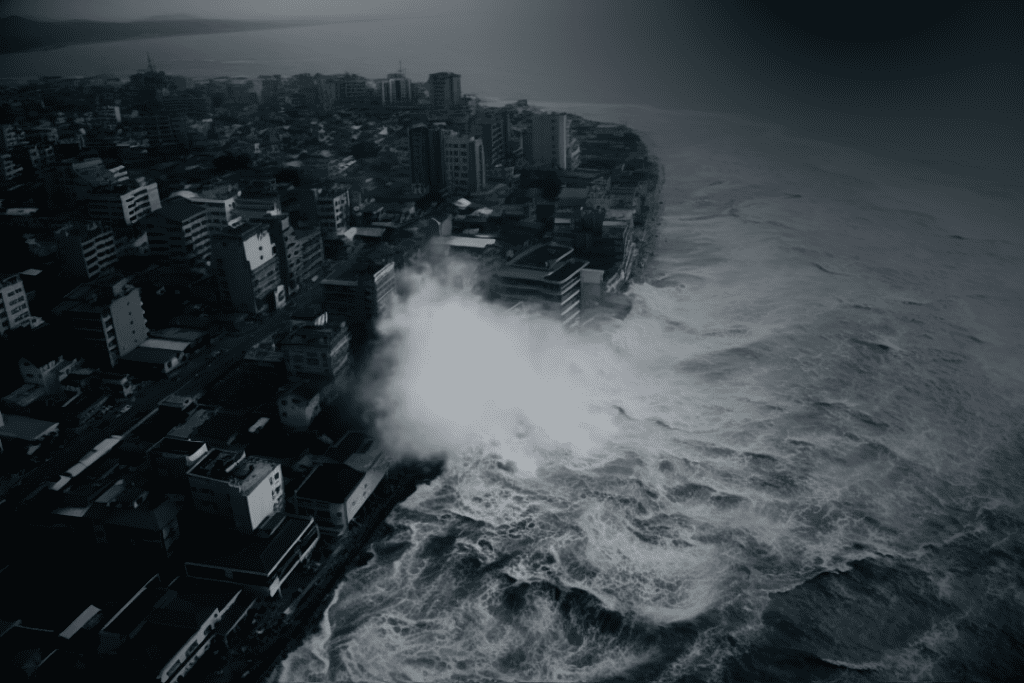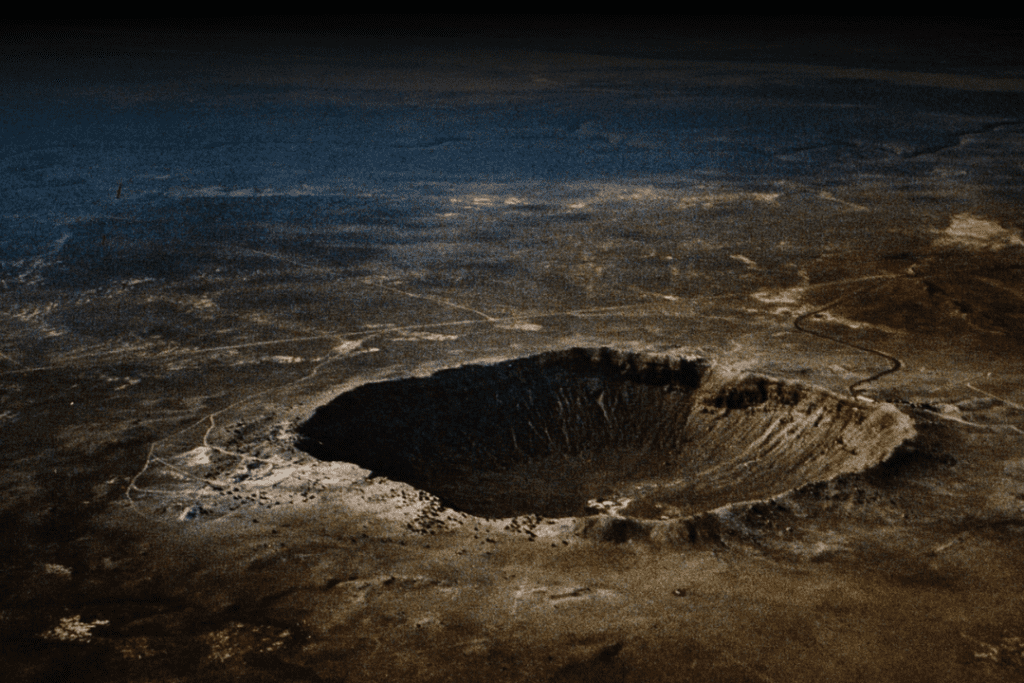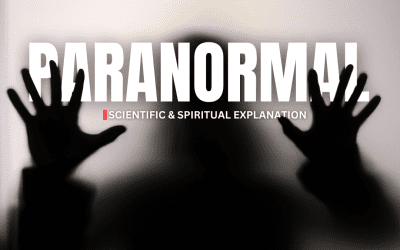“Understanding the Danger: What Could Happen if an Asteroid Hits Earth?”
Picture this: The sky, usually calm and clear, suddenly gets a rude awakening. Something huge is heading straight for Earth. It’s not a movie scene; it’s the real deal. When asteroids come knocking, it’s not just about cool special effects or heroes saving the day. It’s a serious threat that scientists don’t take lightly. So, let’s break it down into simple terms: What happens if an asteroid smacks into our planet?
To cause serious damage to Earth, an asteroid would need to be huge—around 7 to 8 miles wide. When it hits, it kicks up a massive cloud of dust that covers the whole planet, blocking out the sun and making things really hot where it hits. A lot of living things would die—billions, actually—and much of the planet would be wrecked. But some critters might still make it. NASA says only a monster asteroid about 60 miles wide could wipe out all life on Earth.
The numerous large holes on Earth and the moon are evidence of past massive impacts. 66 million years ago, the most famous asteroid struck Earth. It was 93 miles wide and 12 miles deep, making a massive crater off the coast of Mexico’s Yucatán Peninsula! It was as large as a mountain! Scientists think it threw up so much material into the air and created enormous waves that it obscured sunlight. The result was that global temperatures dropped and the dinosaurs became extinct.
- SO WHAT HAPPENS IF AN ASTEROID SMACKS INTO OUR PLANET?
THE IMMEDIATE IMPACT
As the asteroid hurtles towards Earth, the moment of impact unleashes a fury beyond comprehension. With an explosive force, it crashes into the planet’s surface, carving out a colossal crater that stretches for hundreds of kilometers and plunges several kilometers into the Earth’s crust.

Earthquakes are caused by the impact’s immense force, which causes shockwaves to ripple through the earth and shake the land’s very foundations. Awoken from their slumber by the seismic disturbance, volcanoes erupt molten lava and ash into the sky. The asteroid’s violent arrival instantly changes the landscape, leaving scars. The once peaceful surroundings are now ruined as the planet trembles after the devastating hit.
ASTEROID STRIKES AND DEVASTATING EFFECTS
Around the crash site, chaos rules the immediate aftermath of the collision. Under the tremendous force of the impact, buildings crumble like sandcastles and are reduced to nothing more than rubble in an instant. Green canopies of once-luxurious forests are consumed by all-consuming firestorms sparked by the extreme heat of the impact.

Witness the imminent threat as the asteroid approaches, bringing with it the final hour in this gripping tale of survival and humanity’s fight against cataclysm.
The destruction becomes even more dire if the asteroid hits an ocean. The enormous force of the impact causes shock waves to race across the water’s surface, creating tsunamis, which are raging walls of water that rush toward coastal areas with uncontrollable fierceness. Whole towns are engulfed in the relentless assault and carried away by the raging waves’ ruthless embrace.
Following the apocalyptic incident, the landscape is permanently changed, becoming a somber scene of devastation. The survivors emerge from the debris and devastation, their spirits broken but intact as they face the enormous challenge of reconstructing their broken world.
GLOBAL RAMIFICATIONS

The consequences of an asteroid impact would extend far beyond the immediate vicinity of the crash site. The release of dust, debris, and gases into the atmosphere would result in a phenomenon known as “impact winter,” where sunlight is blocked, leading to a temporary cooling of the climate. This could disrupt ecosystems, agriculture, and food supplies, exacerbating the already dire situation.
ECONOMIC AND SOCIAL DISRUPTIONS
The disruption to global trade, communication, and transportation networks would be severe. Infrastructure would be damaged or destroyed, making it difficult to provide aid and assistance to affected areas. The loss of life and livelihoods would be staggering, with long-term repercussions for societies around the world.
ENVIRONMENTAL CONSEQUENCES
The ecological impact of an asteroid strike would be profound. Habitats would be destroyed, leading to the extinction of species unable to adapt to the rapidly changing environment. The delicate balance of ecosystems would be thrown into chaos, with long-lasting implications for biodiversity and the health of the planet.
MITIGATION AND PREPAREDNESS
While the scenario of an asteroid impact may seem bleak, scientists are actively working on strategies to detect and deflect potentially hazardous asteroids. Early warning systems, planetary defense missions, and international collaboration are key components of these efforts. Preparedness measures, including emergency response plans and disaster management strategies, are essential for minimizing the impact of such an event.
Would humans survive such a cataclysmic event?
In summary, the location, speed, and size of the asteroid, as well as our level of preparedness, all affect our chances of surviving an impact. While larger asteroids may have catastrophic global effects, smaller ones might only cause localized damage. Early detection, asteroid deflection technologies, emergency response plans, and long-term plans like planetary defense and asteroid mining would all be necessary for survival.

The hypothetical scenario of an asteroid impact serves as a stark reminder of the fragility of life on Earth and the importance of safeguarding our planet against cosmic threats. While the likelihood of such an event may be rare, the potential consequences are too significant to ignore. By investing in scientific research, international cooperation, and preparedness measures, we can better protect ourselves and future generations from the devastating effects of an asteroid impact.
Check:









0 Comments